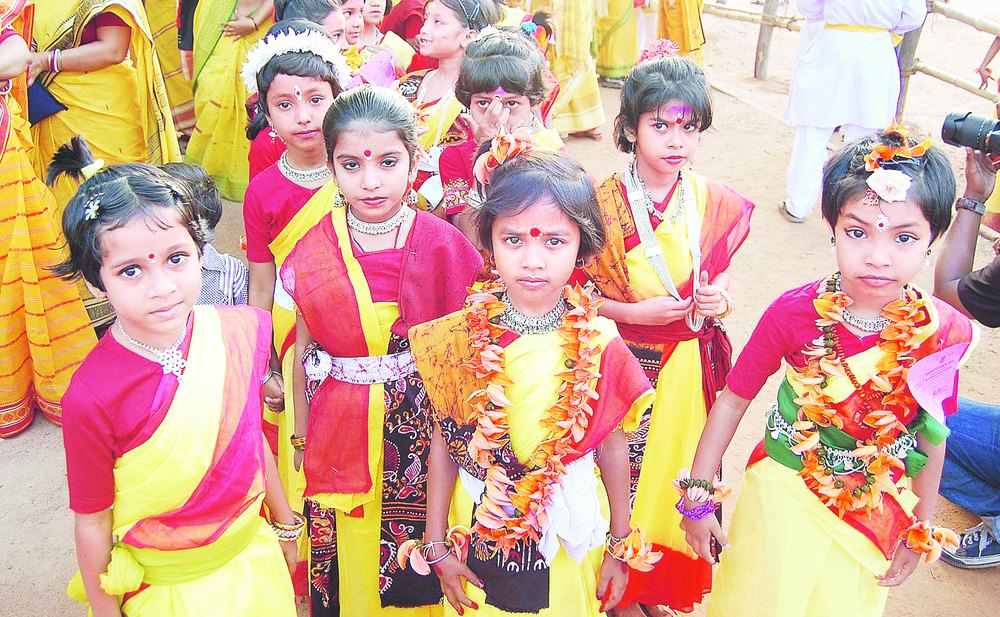
Santiniketan, March 1: Visva-Bharati has requested police to assist it in its endeavour to stop the sale of palash flowers before Basanta Utsav so that the flame-coloured trees on the campus and in its neighbourhood stay untouched.
The university started a campaign against plucking of palash ( butea monosperma) flowers, a saffron coloured flower, from 2013 when it told students through a circular that they must not pluck, buy or wear palash flowers. They look better on the trees, the university said.
Several times whole branches of trees were hacked to pluck the flowers on the campus and in its neighbourhood before Basanta Utsav - the day of Holi which is on March 5.
"We believe if the sale of palash can be restricted in and around Santiniketan, then the trees can be saved from damage," said Amartya Mukhopadhyay, a teacher and a joint secretary of Karmi Mandali, which organises all the festivals at Visva-Bharati.
The palash in bloom signals the coming of spring or Basanta. Rabindranath Tagore had started Basanta Utsav in the 1920s to celebrate spring. Ore Grihobashi, a well-known Tagore song performed at the baitalik - the morning procession on Basanta Utsav - mentions the palash flower on the day of Dol or Holi.
At a meeting university authorities held yesterday afternoon with district officials to decide on the arrangements for Basanta Utsav, the protection of the palash trees came up.
The university officials requested the administration to help stop the sale of palash flowers outside the campus, an official who was present at the meeting said.
Malay Haldar, the subdivisional officer, said: "We discussed the palash issue at the meeting. The police have been requested to tell people not to sell palash flowers. There is, however, no plan to punish anyone selling palash."
University pro vice-chancellor Swapan Kumar Datta said that every year a large number of palash trees in Santiniketan were destroyed because the flowers were plucked for Basanta Utsav.
"This year, we will not allow anyone to pluck the flowers on the campus and so we will direct our security personnel to guard the trees. At the entrance to the campus, our volunteers will request people not to attend the programme adorned with the flowers," Datta said.
The university has decided to guard nearly 100 palash trees on the campus and would also request visitors not to attend the programme wearing garlands or wristlets of palash.
Girls in yellow-and-red saris, with palash tucked in their hair and aabir on their faces, is a familiar visual of Basanta Utsav when hundreds of tourists come to Visva-Bharati.
When Basanta Utsav was started, the practice of wearing flowers as ornaments was encouraged as Tagore had envisioned Santiniketan as an ashram. Students picked up flowers that fell from the trees. Plucking the flowers was discouraged then too.
Jayati Ghosh, a retired teacher of Siksha Satra, a school run by Visva-Bharati, who was an ashramite, said: "In our time, we used to decorate ourselves with palash flowers that fell from the trees. Now branches of trees are cut to get the flowers. A ban on the use of palash at Basanta Utsav is a good initiative by the authorities for their protection."










